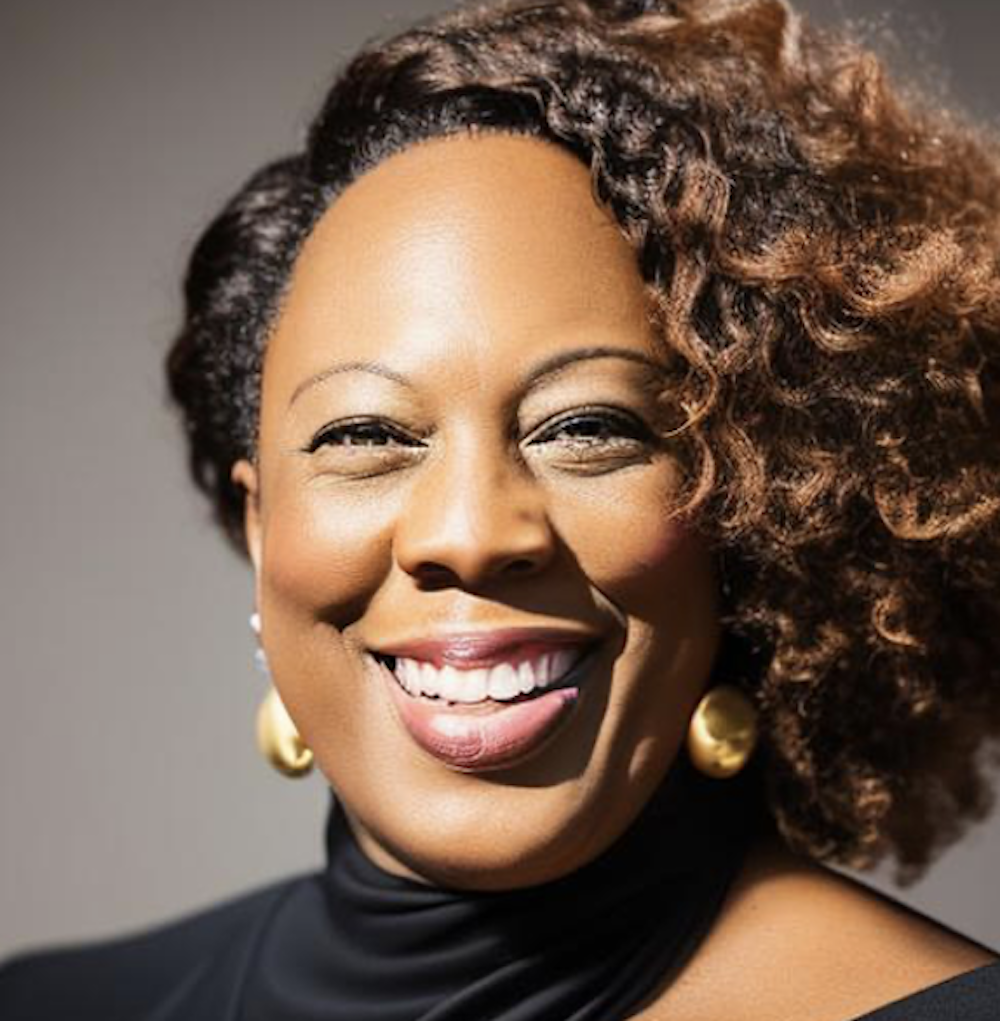The First Job That Started a Lifetime of Mentorship
By Shanita Baraka Akintonde, MBA
October 2023
As a 30-plus-year working professional, my career trajectory includes creating advertising and PR campaigns for Porter Novelli, the Chicago Tribune and DDB. I’m now president of ShanitaSpeaks, LLC, my communications and professional-speaking business in Chicago. Along the way, I’ve had my fair share of role models who have pushed me to grow, often by recognizing qualities within me that I didn’t see myself.
A first mentor
As I shared on my mentoring podcast in May of this year, I started my first paid job at age 16, working at the now-defunct Montgomery Ward department store in Chicago as a salesclerk, selling fine jewelry. My job was to tout the benefits of a Seiko watch versus a Timex; to showcase silver, gold and rose-colored chain necklaces in the transparent display case; and occasionally to replace a watch battery. I stood behind smudge-free glass countertops (courtesy of my almost obsessive, regular wipe-downs) and smiled a lot.
Working at a store whose mail-order catalogs were coveted in my home and across the country was an enviable position. The truth, however, was that I had no idea what I was doing.
Luckily, one of my colleagues, a bearded gentleman, pulled me aside one day and asked, “How’s it going?” I felt instant relief. All the fear and frustration that had been bottled up inside me came tumbling out of my mouth. I expressed my angst over not knowing the real difference between the watch brands.
I sobbed as I explained how I’d inadvertently caused a thin gold chain to slip through a crack on the side of the display case on my first day when wiping down the glass.
In a soothing tone, he told me not to worry. He pulled a set of keys from his pocket, opened the doors beneath the display case and retrieved the fallen chain. “Happens all the time,” he shrugged. “I keep telling them to seal that crack.”
I stood still as a statue. He then passed along a compliment about me from one of his customers.
He later taught me all he knew about fine jewelry and watches, which was a lot. We ate lunch together at Lindy’s — the best spot for Chicago-style hot dogs. Although I was never granted access to the diamond case — reserved for a select group of salespeople who received salaries and commissions — I was delighted to have discovered my own gem, in the form of my first mentor.
Many mentors would follow for me, including those within the PRSA community. Some are official mentors, others unofficial. Either way, they serve as role models and help mentees grow professionally.
Mentors are not motivated by money. Instead, they’re driven by the satisfaction they receive from sharing their knowledge, experience and insights with younger generations. Mentors helped me secure my first PR jobs. I credit my PR mentors for teaching me how to hone a news release and handle sensitive client issues.
A career full of mentoring
Today, as a tenured professor of public relations at Columbia College in Chicago for nearly 25 years, I have directed thousands of young minds from the classroom to the boardroom, including many PRSSA students. In addition to being a mentor myself, I have conducted several research studies about career mentoring. Both of my sons, Jimi Daniel (26) and Anthony (22) serve as youth mentors themselves.
For the 2021 book “When Leadership Fails: Individual, Group, and Organizational Lessons from the Worst Workplace Experiences,” I contributed a chapter about how to avoid mentoring mishaps. Allow me to share a few salient tips:
• Engage peer mentors within the organization. Peer mentors give professionals relatable guidance and foster collaboration within an organization. Regular contact helps drive the peer-mentor/mentee relationship, which is especially important for mentees who are overwhelmed in their work and might not otherwise find time to be mentored.
• Allow two-way feedback. Feedback from company leaders to their staff can be another form of mentoring. Consider setting up a system that allows feedback to travel in both directions, so that younger employees can also share their perspectives and competencies with company leaders.
• Institute multitier feedback from company leaders. This type of exposure would allow millennials the benefit of sharing their competencies to various groups, including superiors within the organization and to receive multiple forms of feedback from various stakeholders.
• Establish a diversity task force. All employees, from newbies to seasoned professionals, will grow and mature in their workplace roles when provided with a variety of perspectives. Today’s employers can benefit from allowing employees to take part in frank conversations on topics such as diversity issues. Such discussions can have a tremendous effect on one’s success (or lack thereof) within the workplace, particularly when it comes to developing next-generation leaders.
• Encourage, train for group mentoring. Studies show that being affiliated with a professional organization can help people grow in their careers and develop their leadership skills. Professional groups often serve as mentoring sources for their members, allowing mentees to reap significant benefits.
An oft-cited 1996 study by Kathryn H. Dansky, a professor at Penn State University, identified four areas of group mentoring: psychosocial support, inclusion, networking and role-modeling. Dansky’s research found that each of these factors had a direct correlation with higher job attainment and salary increases, areas that millennials, in particular, have identified as workplace priorities.
However, for any of these group-mentoring recommendations to work, mentees must be trained. One of the biggest barriers to group mentoring is that mentors first need to understand and feel comfortable with group dynamics.
For many mentors, a combined approach, one that provides traditional mentoring practices with group mentoring, may create the best-case scenario. Engaging senior-level employees as mentors can facilitate this process. Group mentoring programs help improve organizational leadership.
• Learn from mentors’ early career mistakes. When faced with a challenging situation at Montgomery Ward, my mentor swiftly came to my aid, offering invaluable guidance that alleviated my concerns. His patient and empathetic approach, likely stemming from his own early missteps, played a pivotal role in assuring me.
Reflecting on that incident involving a misplaced gold chain near the display counter, I realize it marked the beginning of my journey as a mentor myself. This experience not only enriched my understanding but also laid the groundwork for the knowledge I would later impart to others, including PRSSA students.
In our professional trajectory, both mentors and mentees draw strength from personal growth and shared wisdom, forging a path toward continuous improvement.



